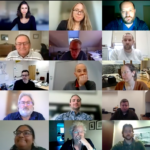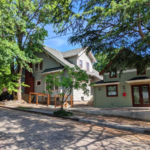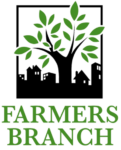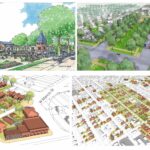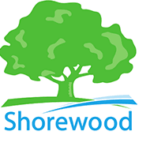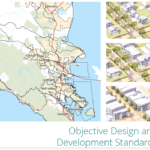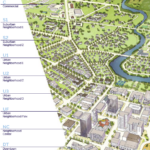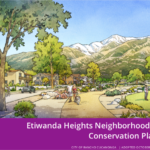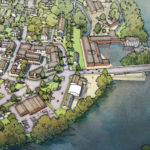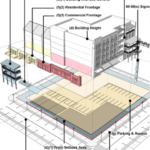FBC 201: Placemaking With Form-Based Codes in Las Vegas
Summary
FBC 201: Placemaking With Form-Based Codes in Las Vegas
Monday and Tuesday, September 18-19, 2017
Las Vegas City Hall
495 South Main Street
Training Rooms 3 and 4
The City Hall parking garage is located at 500 South Main Street. Visitors will receive a ticket upon entering the garage and may park in any visitor or non-reserved parking space. Please bring the ticket into City Hall and we will have vouchers for those who need them. Training Rooms 3 and 4 are located on the first floor, behind the security desk.
Approval pending for 16 AICP CM, CNU-A
This two-day course provides an in-depth understanding of how to guide good urban form through a regulatory framework. Participants learn to create form-based codes by drawing upon an area’s best features to conceptualize the urban elements that shape public space and community character. Instructors delve into the basics of urban form, combining lecture and case studies with “hands-on” participatory exercises in the essential tasks of coding.
The course uses presentations and interactive discussions to enhance participants’ knowledge of urban design at the scale of the building and building types, the street and street types, the block and the neighborhood. Participants work together to apply theory and practice as they create a vision and regulatory elements of plan for an illustrative area. Instructors and panelists discuss unexpected design challenges, and explore design possibilities for greenfield sites, redevelopment areas, already built-out communities and regional plans.
Click the tabs above to see lodging options, agenda and instructors.
NOTE: The one-day class: ABCs of Form-Based Codes — or FBC 101 on-line — is prerequisite for this class.
Lodging
The Downtown Grand
206 North 3rd Street
Las Vegas, NV 89101
(702) 919-5100
The D Hotel
301 Fremont Street
Las Vegas, NV 89101
(702) 388-2400
The Golden Nugget
129 Fremont Street
Las Vegas, NV 89101
(702) 385-7111
The Plaza Hotel
1 South Main Street
Las Vegas, NV 89101
(702) 386-2110
Agenda
The following preliminary agenda is subject to change.
A final agenda will be ready one week before the start of the class.
DAY ONE — Monday, September 18, 2017
| 8:00 – 8:30 AM | Light Breakfast and Registration |
| 8:30 – 9:15 AM | Welcome / Course Highlights / Introductory Discussion
Topics covered: An introduction to the Form-Based Codes Institute. Understanding the role of the regulatory framework in determining urban form; how form-based coding creates compact, walkable urban communities. Why form matters. Participants’ objectives and desired takeaways. Coding issues in your community. |
| 9:15-10:15 AM | Urban Form Basics: Streets
Topics covered: How to create a planning framework for place-making. The network, context, street types, and elements of the street cross-section. Overcoming barriers to healthy streets. Resources for creating great streets. |
| 10:15-10:30 AM | Break |
| 10:30 – 11:30 AM | Urban Form Basics: Streets/Street Space
Topics covered: The role of the physical neighborhood in healthy communities. The basic building block of towns and cities: neighborhood center, interior and edge; mix of uses and the hierarchy, function and location for types of streets needed. |
| 11:30 AM – 12:15 PM | Urban Form Basics: Private Building Principles and Building Types
Topics covered: The role of buildings to form and protect private open spaces and frame public space; the palette of building types that make up a city. |
| 12:15 – 1:00PM | Lunch on Your Own/ Informal Discussion with Instructors |
| 1:00 – 1:30 PM | Urban Form Basics: The Urban Block
Topics covered: How urban blocks define the physical structure of the places we inhabit. |
| 1:30 – 2:15 PM | Small-Scale Urban Design Examples: Street/Block/Building Scale Topics covered: Illustrating the urban form basics of private building principles, building types, street space configuration and street trees. |
| 2:15 – 3:00 PM | Large-Scale Urban Design Examples: Neighborhoods Comprising a City
Topics covered: Examples of how neighborhood centers, interiors and edges may be knit together successfully to create a city. |
| 3:00 – 3:15 PM | Break |
| 3:15 – 5:15 PM | Exercise One: Creating a Vision and Illustrative Plan
Topics covered: This is the first of a two-part exercise that explores the fundamental process of form-based coding. Instructions will work with class participants translate a community vision into form-based regulations. Class participants will learn how to create a vision and extract the necessary information to decide what to regulate and the degree of change needed to achieve the outcomes embodied in the community vision. In this exercise, participants will create a Vision/Illustrative Plan for a set of urban blocks. The resulting plan will be the basis for Exercise Two, which will create a regulatory framework that will achieve the vision. |
| 5:15 – 5:45 PM | Questions and Answers |
DAY TWO — Tuesday, September 19, 2017
| 8:00 – 8:30 AM | Light Breakfast |
| 8:30 – 9:30 AM | Exercise One Instructor Comments |
| 9:30 – 10:30 AM | FBCs : Creativity and Constraints
Topics covered: What a code controls and doesn’t control, creativity in the “street wall,” and how it depends on the code you write — an FBC is not a design guideline. FBCs and an architect’s license for creativity, when push comes to shove. |
| 10:30 – 10:45 AM | Break |
| 10:45 – 12:00 PM | Local Perspective on Form-Based Coding
Topics covered: Form-based codes have gained positive momentum in Ohio as a legitimate alternative to Euclidean zoning. Regional examples of existing codes will be shared and discussed. |
| 12:00 – 12:45 PM | Lunch on Your Own / Informal Discussion with Instructors |
| 12:45 – 1:45 PM | Regulating: Theory and Practice
Topics Covered: How the neighborhoods and their subcomponents (streets, buildings and blocks) are assembled to create a coding map, today and in the future. |
| 1:45 – 3:30 PM | Exercise Two: Create / Choose Regulations
Topics covered: Synthesizing and coding the fundamental elements that form the character of the streets. This will include a discussion of street space and building form and function in three dimensions. |
| 3:30 – 3:45 PM | Break |
| 3:45 – 4:15 PM | Exercise Two Instructor Comments — All Instructors |
| 4:15 – 5:00 PM | Roundtable Discussion
Topics covered: Broad theme of sustainability (environmental and economic). How form-based codes are used to promote walkable, mixed-use urbanism. Sea-level rise. Energy policy, tactical urbanism and return on investment for local governments. Local questions and concerns. “Parking lot” issues from throughout the course. Looking ahead to FBC 301. |
| 5:00 PM | End of Course |
Instructors
FBCI draws upon national experts, including urban designers and planners with broad experience in all aspects of form-based coding.
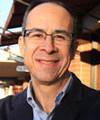 Tony Perez has over 25 years of public and private sector experience with a focus on organizing and writing specific plans and master plans. In the past 12 years, Tony has prepared or co-authored over thirty form-based codes. His recent work in California includes the Fremont Center City Code, the Fresno Downtown Code, the Vallejo Citywide Code, and the Tehachapi Citywide Code. He also worked on Santa Ana’s Transit Zoning Code, which won the 2012 Driehaus Form-Based Codes Award. Prior to entering the private sector in 2000, Tony served as city planner for several California cities, in roles that included redevelopment staff for three main street revitalization projects. Tony is fluent in urban design and architecture, enabling him to extract information and direction out of a community vision and to ask important questions of designers and stakeholders in the process. Tony is Director of Form-Based Coding at Opticos Design, Inc.
Tony Perez has over 25 years of public and private sector experience with a focus on organizing and writing specific plans and master plans. In the past 12 years, Tony has prepared or co-authored over thirty form-based codes. His recent work in California includes the Fremont Center City Code, the Fresno Downtown Code, the Vallejo Citywide Code, and the Tehachapi Citywide Code. He also worked on Santa Ana’s Transit Zoning Code, which won the 2012 Driehaus Form-Based Codes Award. Prior to entering the private sector in 2000, Tony served as city planner for several California cities, in roles that included redevelopment staff for three main street revitalization projects. Tony is fluent in urban design and architecture, enabling him to extract information and direction out of a community vision and to ask important questions of designers and stakeholders in the process. Tony is Director of Form-Based Coding at Opticos Design, Inc.
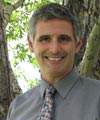 After a 25-year planning career for local government in Arizona, Roger Eastman works for Lisa Wise Consulting LLC as Director of Development Codes and Planning. Throughout his career he has pursued an active interest in planning for quality human-scale urbanism and crafting the codes and regulations that support attractive, walkable, vital and desirable communities. In Arizona he started working for the City of Sedona soon after its incorporation, and as a planner (eventually Senior Planner) he completed development reviews for new projects, updated the City’s Land Development Code, established the City’s first GIS, and participated in long-range planning efforts. In 2006 he accepted the position of Zoning Code Administrator with the City of Flagstaff, and soon was promoted to Comprehensive Planning and Code Administrator with oversight responsibility of the City’s long-range planning program, the Zoning Code and its administration, and the code compliance team. A strong advocate of smart growth principles, he successfully promoted those concepts in Flagstaff where he led a team with consultants that wrote an award-winning Traditional Neighborhood District ordinance based on the SmartCode. He also managed a major project over three years to comprehensively rewrite the City of Flagstaff’s zoning ordinance as an award winning and innovative hybrid zoning code that integrates form-based code elements with conventional zoning techniques. He has called Sedona his home for almost 30 years where he lives with his wife Michelle and four dogs.
After a 25-year planning career for local government in Arizona, Roger Eastman works for Lisa Wise Consulting LLC as Director of Development Codes and Planning. Throughout his career he has pursued an active interest in planning for quality human-scale urbanism and crafting the codes and regulations that support attractive, walkable, vital and desirable communities. In Arizona he started working for the City of Sedona soon after its incorporation, and as a planner (eventually Senior Planner) he completed development reviews for new projects, updated the City’s Land Development Code, established the City’s first GIS, and participated in long-range planning efforts. In 2006 he accepted the position of Zoning Code Administrator with the City of Flagstaff, and soon was promoted to Comprehensive Planning and Code Administrator with oversight responsibility of the City’s long-range planning program, the Zoning Code and its administration, and the code compliance team. A strong advocate of smart growth principles, he successfully promoted those concepts in Flagstaff where he led a team with consultants that wrote an award-winning Traditional Neighborhood District ordinance based on the SmartCode. He also managed a major project over three years to comprehensively rewrite the City of Flagstaff’s zoning ordinance as an award winning and innovative hybrid zoning code that integrates form-based code elements with conventional zoning techniques. He has called Sedona his home for almost 30 years where he lives with his wife Michelle and four dogs.
To see all FBCI instructors, visit our instructors page
Registration Fees
Private
Early Bird $575
After Sept. 1 $725
Public
Early Bird $525
After Sept. 1 $625
Register here
Discounts will also available for large-group registrations.
Contact FBCI for more information.


